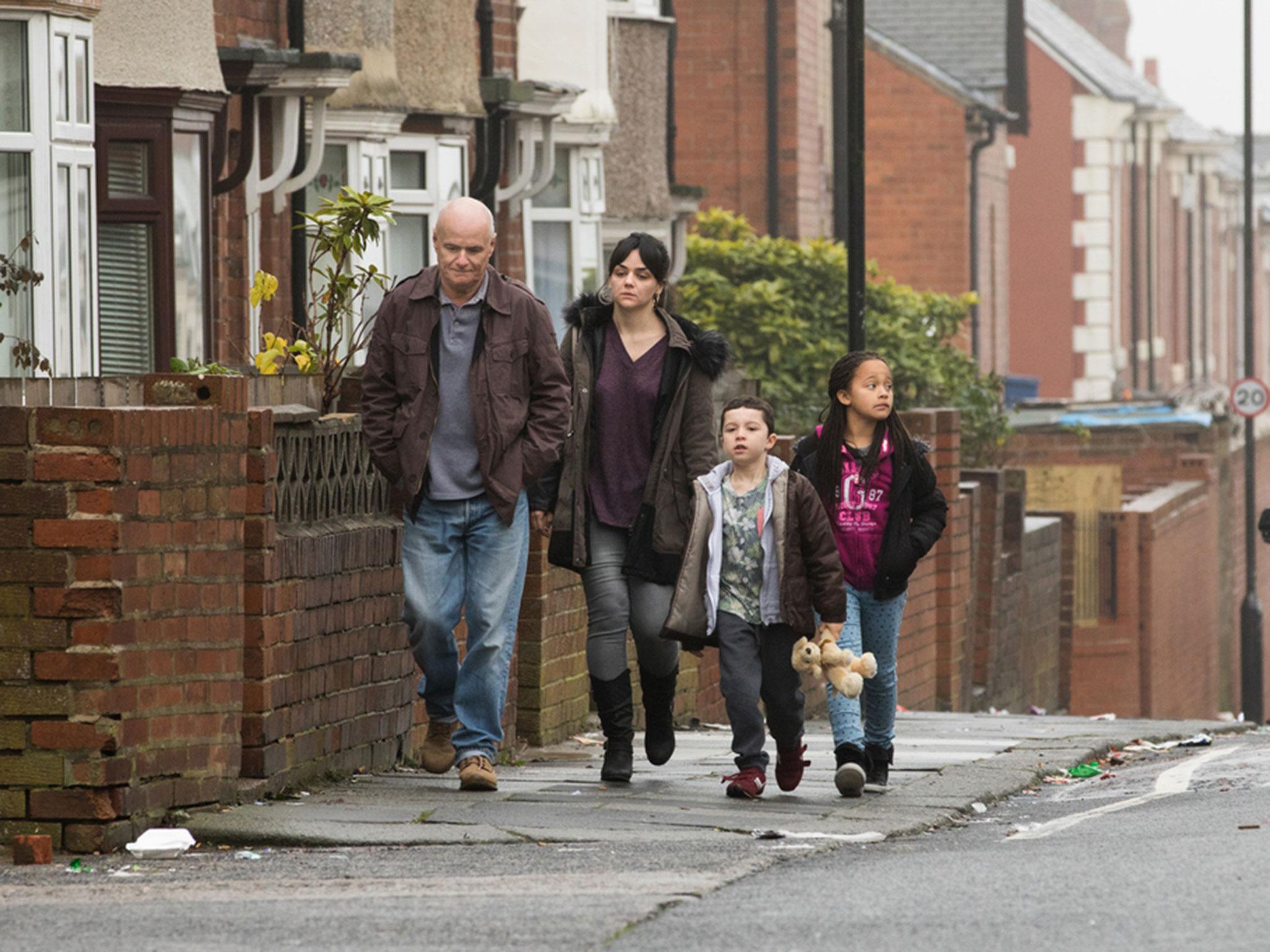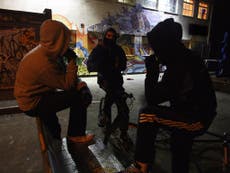Ken Loach is not exaggerating – as a carer to a disabled child, I know this really is the truth about benefits
The benefits system deliberately dehumanises and degrades. My daughter Emily can raise her arms, as she has been asked, but she will never be able to live independently


I, Daniel Blake, the new Ken Loach movie, is the first time that the truth of the benefits system has been scrutinised closely in film. No wonder it’s been met by reviews suggesting the narrative is too heavy-handed. As a carer to my disabled child, let me tell you straight: it is not. However hard it is for you to watch, this is the truth.
The media perpetuates the myth of the “benefit scrounger” with TV shows such as Benefits Street. The reality is that the benefits system is skewed against people like my learning disabled daughter, for whom I had to fight to get a home and crucial support payments in order for her to live her life.
To be disabled or a carer, to be ill, elderly, frail or vulnerable in this country means that you live in fear. Anyone with a disabled child lives in for them anyway – but if you need support from the state, that fear becomes realized. We are witnessing an obscene destruction of lives and livelihoods, futures and communities, as people turn against each other and point the finger of blame. When the system and society combine to disenfranchise you, what hope do you have?
Loach’s brave film deals with the inconvenient truth that we are all of us just one illness or accident away from crisis, just like his two leading characters, Daniel and Katie. Daniel, who has worked all of his life, has a heart attack; Katie is shunted from London to Newcastle in the search for the social housing to which she is entitled.
The house we found for my daughter, Emily, was from stock “held back for other purposes”, meaning it had been allocated without being publicised. For that reason alone, we were expected to travel further than an hour away for a property which was perfect for her disability and very close to home.I fought for her and won but what if I hadn't fought as hard for Emily? What if I hadn't discovered the property she was eventually granted, by accident? What would have happened then? Would my daughter have been sent away from me to Newcastle? Or to a psychiatric hospital where many people with Emily's needs end up.
While fighting with my local council to for the social housing Emily desperately needed, I was also navigating the hell that is the benefits system – just like Loach’s characters.
The intrusive Employment Support Allowance forms, which run to many pages, ask meaningless questions such as “can you raise to arm as if to put a pen in your top pocket” These questions generate a points scoring system; like the welfare equivalent of a supermarket loyalty card, the bonus claimants receive is social security or starvation.
It’s a system that deliberately dehumanises and degrades. My daughter Emily can raise her arms but she will never be able to live independently, manage her own affairs or fight for her rights.
I, Daniel Blake is a film which gives voice to all those at the forefront of this system. It’s unashamedly political, and so is this piece: the truism that the personal is political is writ large when it comes to the overhaul of the welfare system.
This system is supposed to care for us at a time of greatest need. That’s why the welfare state was created, to recognize that any of us could fall victim to circumstances beyond our control. Yet the shame heaped on benefit claimants now shouts loudly in our collective faces that poverty is somehow a “lifestyle choice”. That need and illness and disability and circumstance are all something to be ashamed of.
Millions have recently been allocated by the DWP to challenge tribunals for those who request a reassessment for support payments after being refused. Although Emily is learning disabled from birth and for life, there are no guarantees that she will be allocated these urgent payments next time she is assessed. It makes a nonsense of “Compassionate Conservatism”.
Since all of this began for Emily, back in January, I haven’t had much sleep. Ever since her diagnosis at three years old I’ve feared for her future. I fear for the time when I’m not around to fight for her. As private companies encroach on our welfare state they cast their cold eyes on our most vulnerable citizens, turning a human life into a bottom line.
Three years ago, a survey of GPs warned that many of their disabled patients were contemplating or actually committing, suicide. The government didn't listen then and it isn't listening still.
All of us who know and love someone who needs the safety net of social security have been left utterly hopeless by the weaponising of the benefits system – a weapon the Government deploys against its own people. I have spent most of the last few months in tears trying to get Emily what she needs and feeling hopeless and broken by the system. I've felt panicked, terrified, and angry and horrified by what is being done to hundreds of thousands like her who just want what everyone wants: a roof over their head and food on the table.
That's not an aspiration or a “lifestyle” choice, that's just survival.
A society should be judged by how it treats its most vulnerable citizens. With I, Daniel Blake Ken Loach has turned media guns against the government generals orchestrating this war on welfare. He is reminding us all that in war, truth doesn't have to be the first casualty.



Join our commenting forum
Join thought-provoking conversations, follow other Independent readers and see their replies